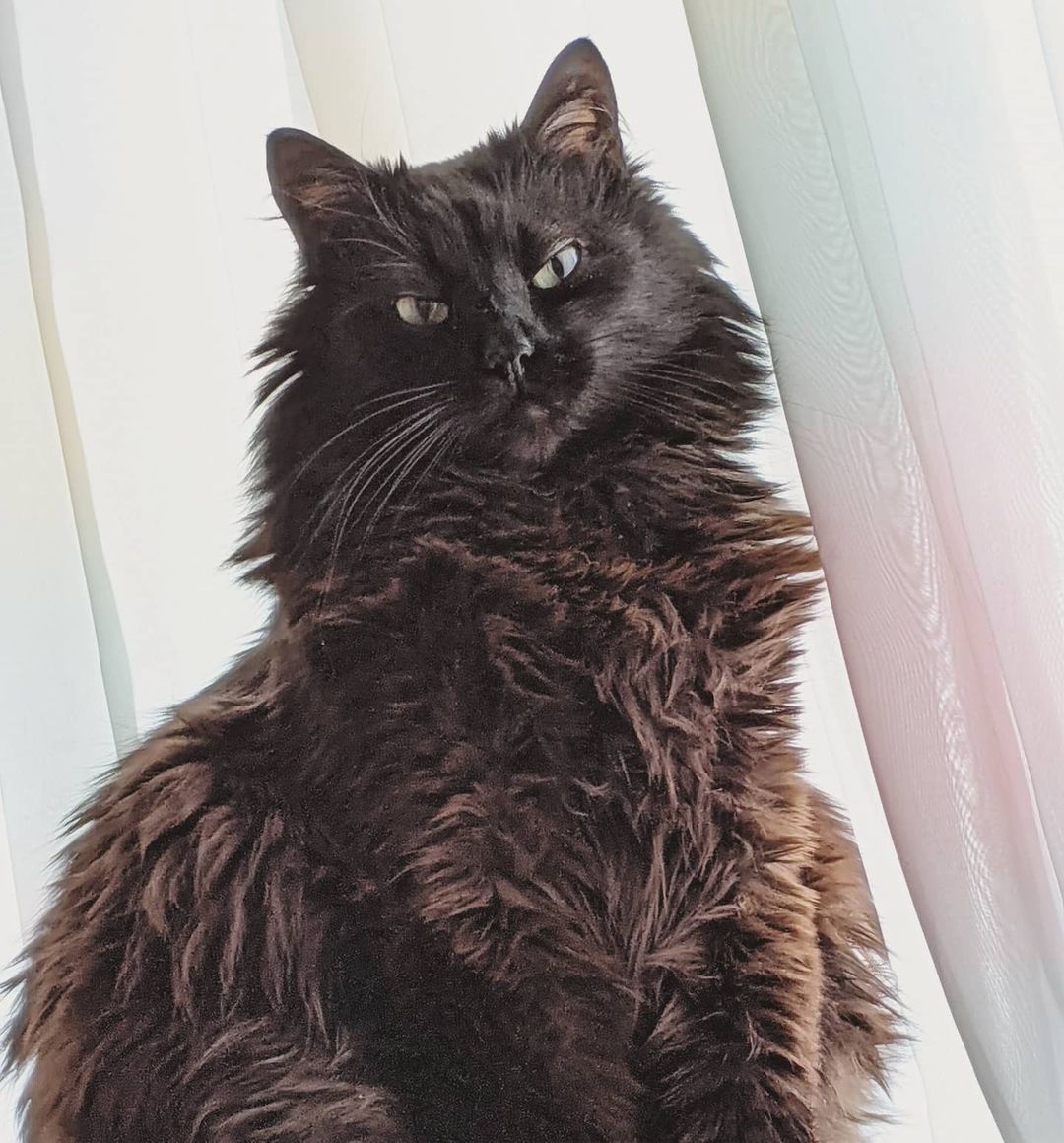The Black Turkish Angora is a graceful cat with a lithe body, long silky hair, and a penetrating gaze of beautiful eyes. Although its appearance evokes thoughts of a cold and unapproachable disposition, it has an affectionate and good-natured character.
The Genetics Behind the Black Turkish Angora
The palette of cat hair colors depends on two substances – eumelanin and pheomelanin. The former is responsible for the formation of the black color, as well as its derivatives – chocolate, blue, lilac, fawn, cinnamon. The cat’s coat is colored in a uniform charcoal shade. The black angora has dark brown or anthracite paw pads.
The genes responsible for black (b) or red (o) color are located on the X chromosome. In other words, the inheritance of coat color is sex-linked. Cats have two X-chromosomes and three variants of coat color:
– XoXo – red;
– XbXb – black;
– XbXo – tortoiseshell.
Cats have one X chromosome. The cat can be red or black, the color of its coat depends on which gene is carrying this chromosome – b or o.
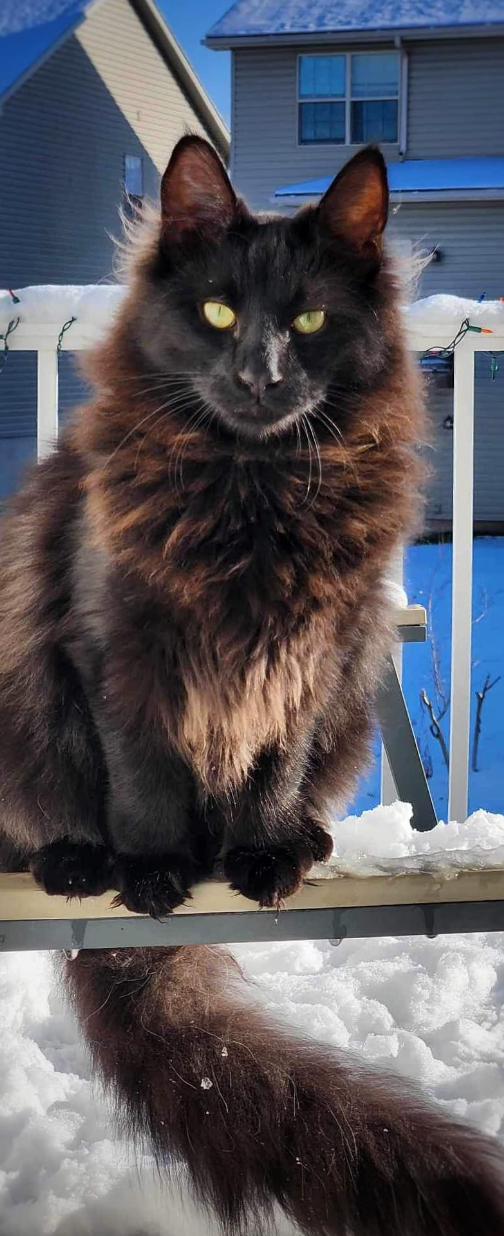
Black Turkish Angora Size & Weight
The Angora cat is a graceful animal with a long flexible body and lightweight bones. Elegant movements and beautiful soft fur are her trademarks. A detailed description of the breed is presented in a generally recognized standard.
Black Turkish Angora size
Female: Between 11 and 13 inches
Male: Between 11 and 13 inches
It reaches its adult size from 10 to 12 months.
Blck Turkish Angora weight
Female: Between 5 and 12.5 pounds
Male: Between 5 and 12.5 pounds
Black Munchkin Temperament & Personality
Black Turkish Angoras are reserved cats with regal habits. They are very curious, sensitive, and persistent. Angora cats subtly feel not only the mood of the owners but also their attitude towards themselves. Representatives of the breed do not like loneliness and do not tolerate long separation from the owner.
On a note. Angora cats prefer to communicate with people through uterine purring sounds. They are not the type to grab attention with loud meows.
The patient nature of the Turkish Angora makes it easy for it to find contact with children. A cat of this breed is condescending to childish pranks and if in a good mood, will gladly take part in the games.
The black Turkish Angora gets along well with its relatives and friendly dogs, especially if it grew up with them. In other cases, it can conflict with other pets, vying for the attention of the owner. This cat has developed hunting instincts, so it cannot be kept together with decorative birds, rodents, and aquarium fish.
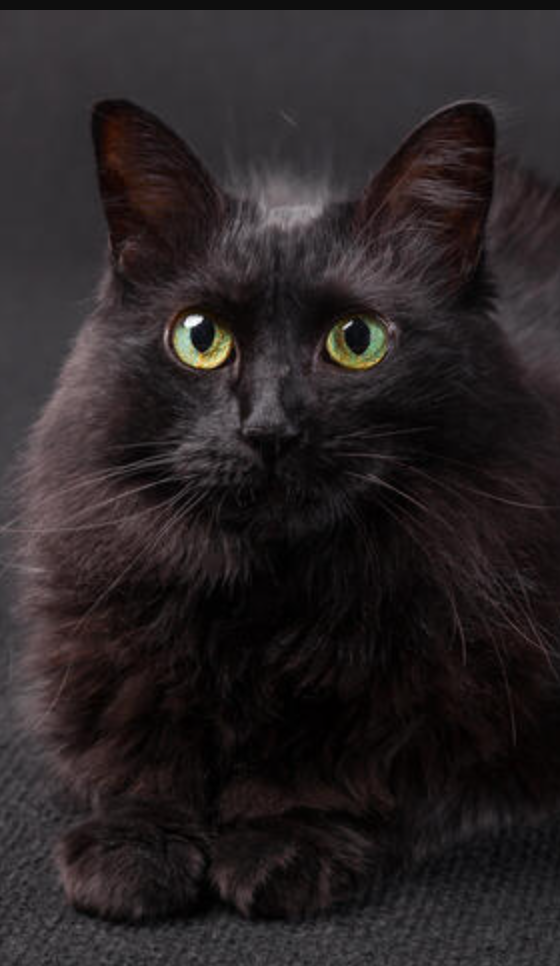
Black Turkish Angora Health & Life Span
The life expectancy of the Black Turkish Angora
They can live from 15 to 18 years. As it is a vigorous cat, some may even live longer.
Resistant / Robust
It is a robust cat with a semi-long coat and a little undercoat. Its fur is thicker at the level of the neck and belly, which allows it to resist both cold and heat.
Tendency to gain weight
This cat does not have a special tendency to gain weight, but like most cats, it needs activities and stimulation to expend its energy and maintain its ideal weight. A diet adapted to your age and your physical activity will prevent you from being overweight.
Common diseases
Its strength makes it not prone to any particular disease. Even so, it is advisable to have him undergo an annual health check-up at the vet. In spite of everything, it can develop the same pathologies as any other cat, such as oral and dental problems.
Reproduction
Young cats reach sexual maturity around 8-12 months of age. We can expect litters of between 3 and 5 kittens after 56 to 71 days of gestation.
The copulation of two white Turkish Angoras usually results in the birth of deaf kittens.
Black Munchkin Grooming & Maintenance

Black Angora cats are native to a country with a hot climate. They do not have a thick undercoat and do not tolerate low temperatures. Therefore, it is better to keep Turkish Angora in warm rooms, where there are no drafts and dampness. For the rest, caring for cats of this breed is reduced to basic hygiene and good nutrition.
Hygiene procedures
To keep the Black Turkish Angora looking neat, it is provided with appropriate care:
- The cat’s eyes and ears are checked daily for abnormal discharge and gently wiped with a moistened cotton swab.
- Angora teeth are cleaned 2-3 times a month with a non-foaming paste, a silicone brush, or a special nozzle.
- As it grows, the claws of a cat are very carefully shortened with a nail clipper so as not to injure living tissues.
Haircare
Since the Turkish Angora is not a shorthaired cat, it needs regular grooming to maintain the beauty of its luxurious fur coat. The silky awn of the animal is combed out with a special brush 2-3 times a week. During the shedding period, the procedure is carried out more often in order to quickly get rid of dead hairs and promote the growth of new wool.
The Turkish Angora is not often bathed. Bath procedures for cats of this breed are arranged 3-4 times a year.
How Much is Black Turkish Angora Cat?

A Black Turkish Angora Kitten has an average tag price of $1600-$2800. Some Breeders could even offer Black Turkish Angora Kittens for $3500 or even higher.
The price would depend on many factors, such as the kitten’s lineage, parents, health, and the breeder’s reputation.
Aside from the kitten’s price, it would be best to consider the expenses that would come with it. For instance, you may want to get the essential things for your kittens like grooming tools, food, and shelter.
Are Black Turkish Angora Cats Rare?
Yes, Black Turkish Angora cats are different due to the genetic makeup that makes them generate a lot of melanin. This is what makes up the black fur.
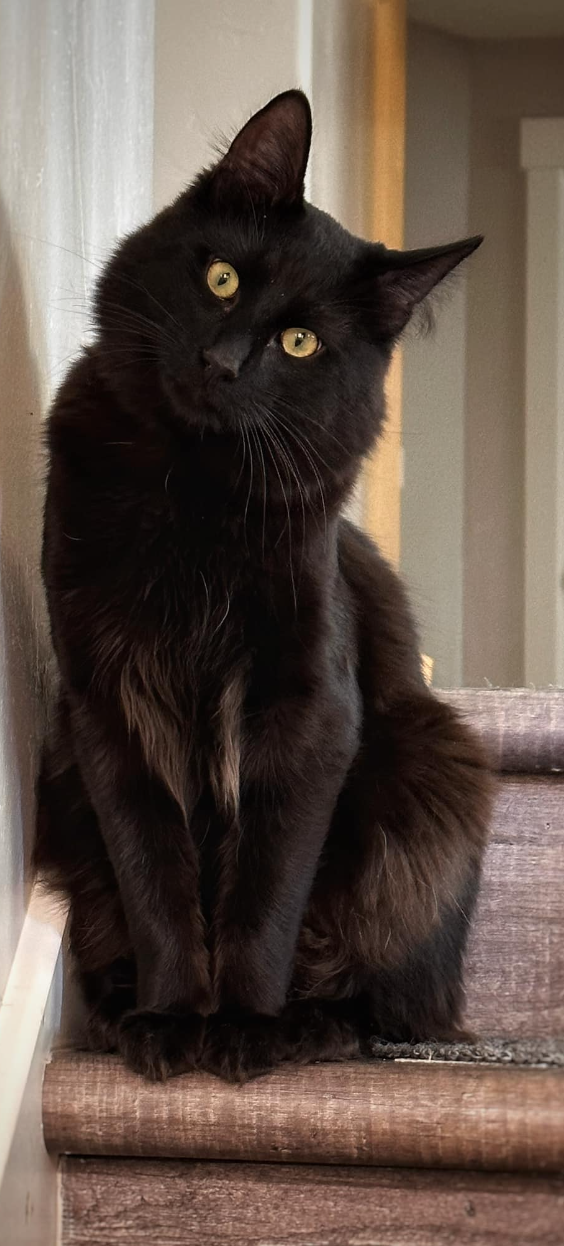
Where Can You Find a Cute Black Turkish Angora Cat?
Below is a list of the top and leading Munchkin Breeders in America with all of their information.
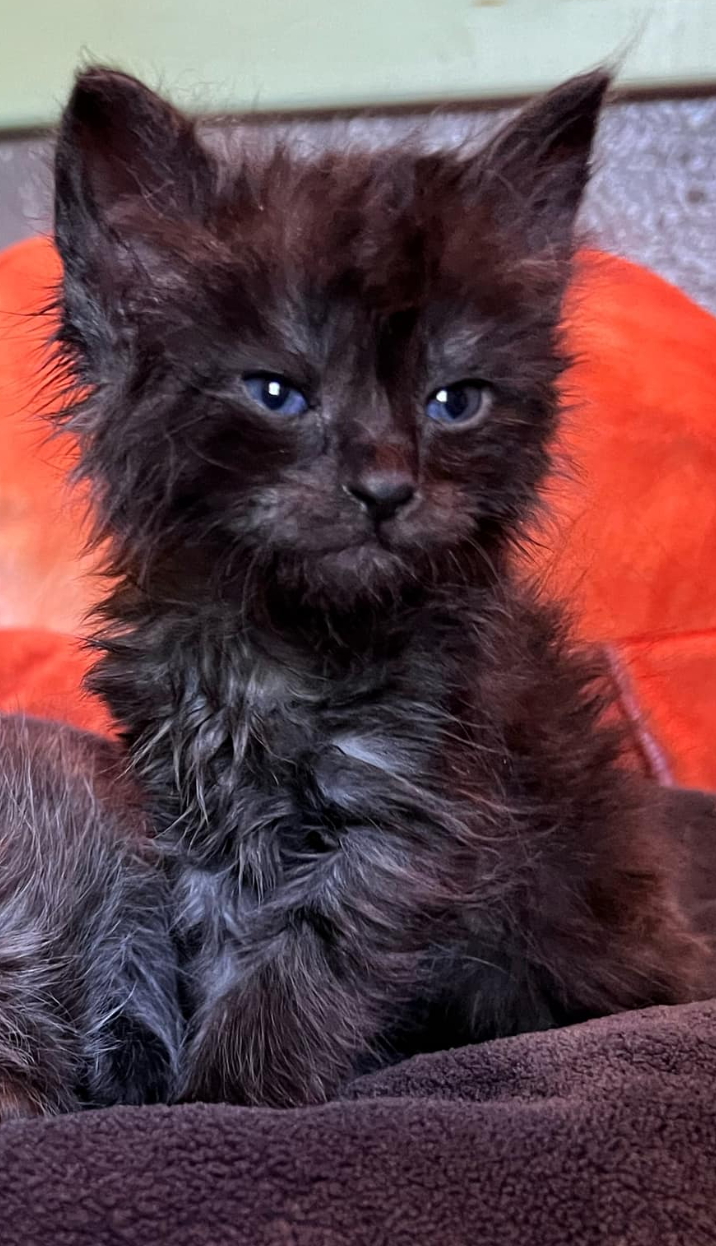
Frequently Asked Questions
Are black Munchkin cats more aggressive?
Any cat, regardless of its color, can show signs of aggression depending on the treatment it receives and its history. A recent study by the University of California revealed that black cats are calmer and more approachable than those of other colors.
What do black cats symbolize?
Black cats are often a symbol of Halloween or witchcraft. In most Western cultures, black cats have typically been looked upon as a symbol of evil omens, specifically being suspected of being the familiars of witches, or actually shape-shifting witches themselves.

